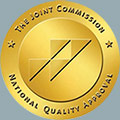Addiction, also known as substance use disorder (SUD), is listed in the Diagnostic and Statistical Manual of Mental Disorders, Fifth Edition (DSM-5) as a chronic, relapsing brain disorder.
While the scientific reasoning behind why an individual develops an addiction remains unknown, there are certain risk factors (e.g., environmental risk factors, genetic risk factors, psychological risk factors, socioeconomic risk factors, etc.) that can increase an individual’s susceptibility to developing an addiction. The Mayo Clinic explains addiction as a disease “that affects a person’s brain and behavior and leads to an inability to control the use of a legal or illegal drug or medication.” Drugs are chemicals that affect the body and brain. Different drugs can have different effects. Some effects of drugs include health consequences that are long-lasting and permanent. Substance use disorder is associated with a wide range of short- and long-term health effects. They can vary depending on the type of drug, how much and how often it is taken, and the individual’s general health.
Short-Term Effects
Although each substance comes with its own set of distinct short-term effects, many overlap, regardless of which substance is abused. The following are some of the most common short-term effects of drug addiction, provided by Medical News Today:
- Shallow breathing
- Elevated body temperature
- Rapid heart rate
- Increased blood pressure
- Insomnia
- Drowsiness
- Slurred speech
- Decreased or increased appetite
- Uncoordinated movements
- Difficulty concentrating
- Irritability
- Aggression
- Angry outbursts
- Lack of inhibition
- Hallucinations
Habitual abuse of any substance can cause one’s health to deteriorate both psychologically and neurologically.
Long-Term Effects
If left untreated, addiction can lead to a range of serious long-term effects. The most common long-term effects of drug addiction on the brain and body may include any combination of the following:
- Kidney damage
- Liver damage and cirrhosis
- Various forms of cancer
- Tooth decay
- Skin damage
- Infertility
- Stroke
- Seizures
- Sexual dysfunction
- Cardiovascular problems
- Lung problems
- Overdose and death
- Cognitive decline
- Memory loss
- Paranoia
- Depression
- Anxiety
- Psychosis
Substance use disorder can wreak havoc in all areas of one’s life. Because the disease compels the individual to prioritize satisfying his or her substance cravings above all else, an individual can experience a plethora of adverse effects, including physiological complications, relationship fractures, financial strain, legal challenges, employment issues, and more. Overall, the effects of drug abuse and dependence can be far-reaching.
For Information and Support
Contemplating detox can be a very challenging time. Before any individual can begin to work on the underlying issues contributing to their substance abuse problem, they must be separated from the substances in their systems. If you are concerned for yourself or a loved one regarding substance abuse, and/ or addiction we recommend reaching out for help as soon as possible. The earlier you seek support, the sooner you and your loved ones can return to leading happy, healthy, and fulfilling lives. Sherwood Detox offers a stand-alone detox program. For additional information on detox, please do not hesitate to contact us at: 818-626-9959 or feel free to email us anytime. One of our trusted counselors is available to talk and discuss how we can best support you on your journey.









